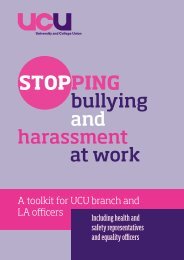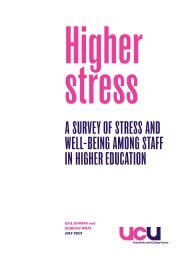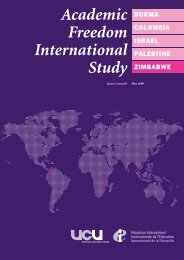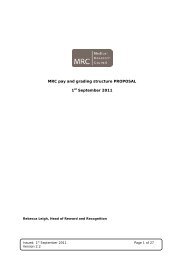GLOBALISATION AND HIGHER EDUCATION - UCU
GLOBALISATION AND HIGHER EDUCATION - UCU
GLOBALISATION AND HIGHER EDUCATION - UCU
You also want an ePaper? Increase the reach of your titles
YUMPU automatically turns print PDFs into web optimized ePapers that Google loves.
While acknowledging that there are no easy answers to ethical dilemmas, there are various initiatives thathelp show how human rights dilemmas can be addressed at an institution-wide level. The AmnestyInternational UK Business Group (1998) has produced a ‘checklist of human rights principles’. If the word‘universities’ is substituted for the word ‘companies’, the checklist enables consideration of whereuniversities could adopt policy and practice:1. [University] policy on human rightsAll [universities] should adopt an explicit [university] policy on human rights which includes support forthe Universal Declaration of Human Rights...2. SecurityAll [universities] should ensure that any security arrangements protect human rights and are consistentwith international standards for law enforcement...3. Community engagementAll [universities] should take reasonable steps to ensure that their operations do not have negative impacton the enjoyment of human rights by the communities in which they operate...4. Freedom from discriminationAll [universities] should ensure that their policies and practices prevent discrimination based on ethnicorigin, gender, sexuality, colour, language, national or social origin, economic status, religion, political orother conscientiously held beliefs...5. Freedom from slaveryAll [universities] should ensure that their policies and practices prohibit the use of chattel slaves, forcedlabour, bonded child labourers or coerced prison labour...6. Health and safetyAll [universities] should ensure that their policies and practices provide for safe and healthy workingconditions and products...The Council on Economic Priorities (CEP) has produced an international standard for social accountabilitybased upon International Labour Office (ILO) Conventions, the CEPAA SA 8000:1997. While described as ‘auniform, auditable standard for a third party verification system’ and directed at the corporate world, it canequally be adopted by universities that wish to make their position on social accountability known. The CEPruns a Forum on Global Standards, which is open to universities and offers regular training sessions onethical auditing. SA 8000 deals with the following ‘social accountability arrangements’:1. Child labour2. Forced labour3. Health and safety4. Freedom of association and right to collective bargaining5. Discrimination6. Disciplinary practices7. Working hours8. Compensation9. Management systems: policy; management review; company representatives; planning andimplementation; addressing concerns and taking correction action; outside communication; access for(third party) verification; records18 Globalisation and higher education


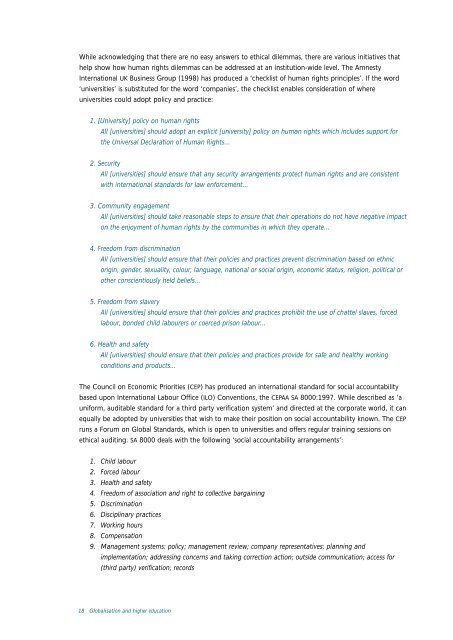
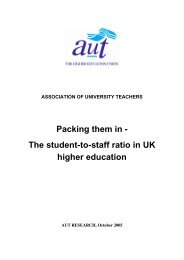
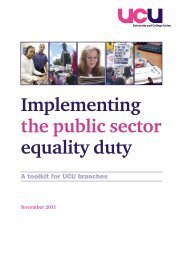

![(.pdf) [29kb] - UCU](https://img.yumpu.com/50914942/1/184x260/pdf-29kb-ucu.jpg?quality=85)
